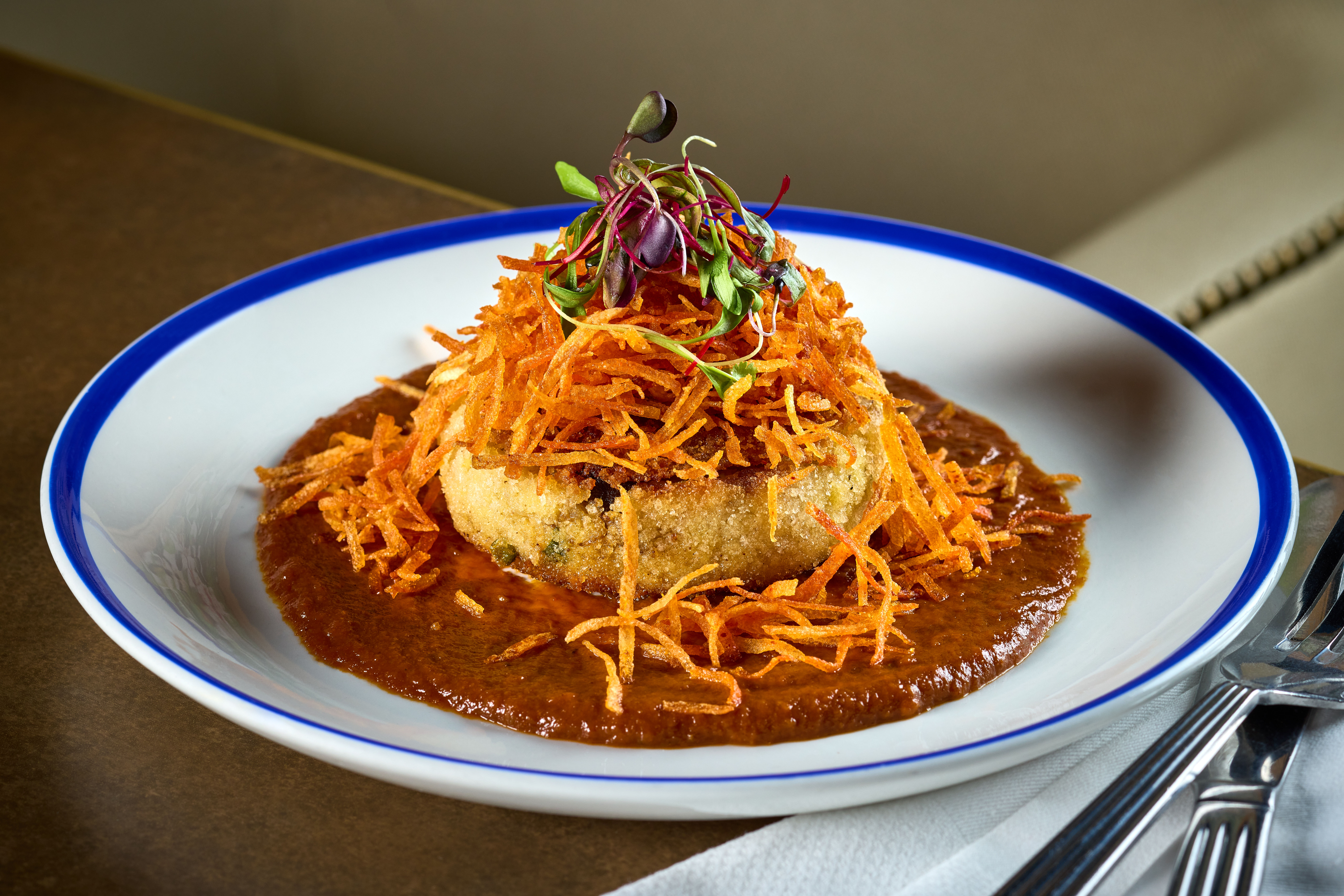WASHINGTON — When Bill Glasser graduated from college, he also graduated from his go-to cup of dried noodles and moved on to a slightly more distinguished food of convenience: the pierogi.
“[I realized] there was something other than ramen noodles that you can eat, you know, 20 of them for $2,” Glasser says.
He may have had his fill of the Polish dumpling in his early twenties, but years later, Glasser started craving them again. The Silver Spring resident was wandering Bethesda’s restaurant-lined sidewalks and realized there was no place to get an American version of the pierogi — or the American version of any pocket food, for that matter.
“In every other culture on the planet, they have their versions — whether it’s an empanada, a pierogi, a calzone, a Jamaican patty,” says Glasser, 51. “And what you find is that the people who know them — whether they’re kolaches, pierogies, empanadas — they’re so passionate about them.”
To Glasser, the closest thing to an American pocket food at the time was a Hot Pocket. “And that’s drunken garbage food,” he says.
So Glasser, a former producer for “America’s Most Wanted,” saw the opportunity to develop a gourmet dough, fill it with high-quality ingredients, form it into a hand-held fried pocket and brand it “Herogie.”
His initial focus, though, was to create a dough different from traditional pierogies. He wanted the flavor and texture of his Herogie dough to resemble something closer to a pastry.
“In all of those other foods, the dough is kind of inconsequential – it’s really just a wrapper. What I wanted to do was create something that had multi-textures … I wanted to create Herogies as like the Everlasting Gobstopper effect,” says Glasser, who admits that achieving his idea of the perfect dough delayed the launch of his business by two to three years.
Glasser hired a handful of chefs — including research and development chefs, Ivan Ramen’s chief operating officer David Poran and a few local restaurateurs — to test variations of dough and experiment with a variety fillings, such as cheeseburger, spinach and feta, bacon and potato and chocolate s’mores.
Once the team felt confident in their creations, they had to transfer from a small-scale testing phase and find a way to reproduce Herogies in much larger quantities. Unlike many local food entrepreneurs, Glasser chose not to start with pop-ups and food carts; he wanted to get his Herogies onto the plates — or into the palms — of the masses. He set his sights on selling Herogies to local restaurants, bars and stadiums.
Glasser also passed on setting up production at a local food incubator space. Because a few of Glasser’s Herogies contain meat and poultry, and he intends to sell them for resale to bars and restaurants, he is required to make his product in a USDA-inspected facility.
So far, Washingtonians can find Herogies on the menu at Silver Spring’s Fire Station 1. Glasser says he’s approached a few other sports bars and restaurants in the area, but has encountered some resistance from chefs and conflicts with supplier contracts.
But that’s not deterring him. Glasser says that with the help of investors, he hopes to open a brick-and-mortar Herogie shop in the District. And he hasn’t completely dismissed the idea of selling his fried pockets on a food truck. In fact, he already has designs for the truck drawn up.
“I see this as a new category, not just an appetizer. I really see this as, ‘Do you want to go for burgers? Do you want to go for pizza? Do you want to go for Herogies?’” Glasser says.
“You can fill this with anything and everything, so you can have breakfast, lunch, dinner, late-night desserts, drunk food, sober food, church food. Once you create the concept, this lends itself to being everywhere you want to get food.”
Editor’s Note: Bill Glasser worked as the director of marketing at WTOP from 1998 to 2001.







